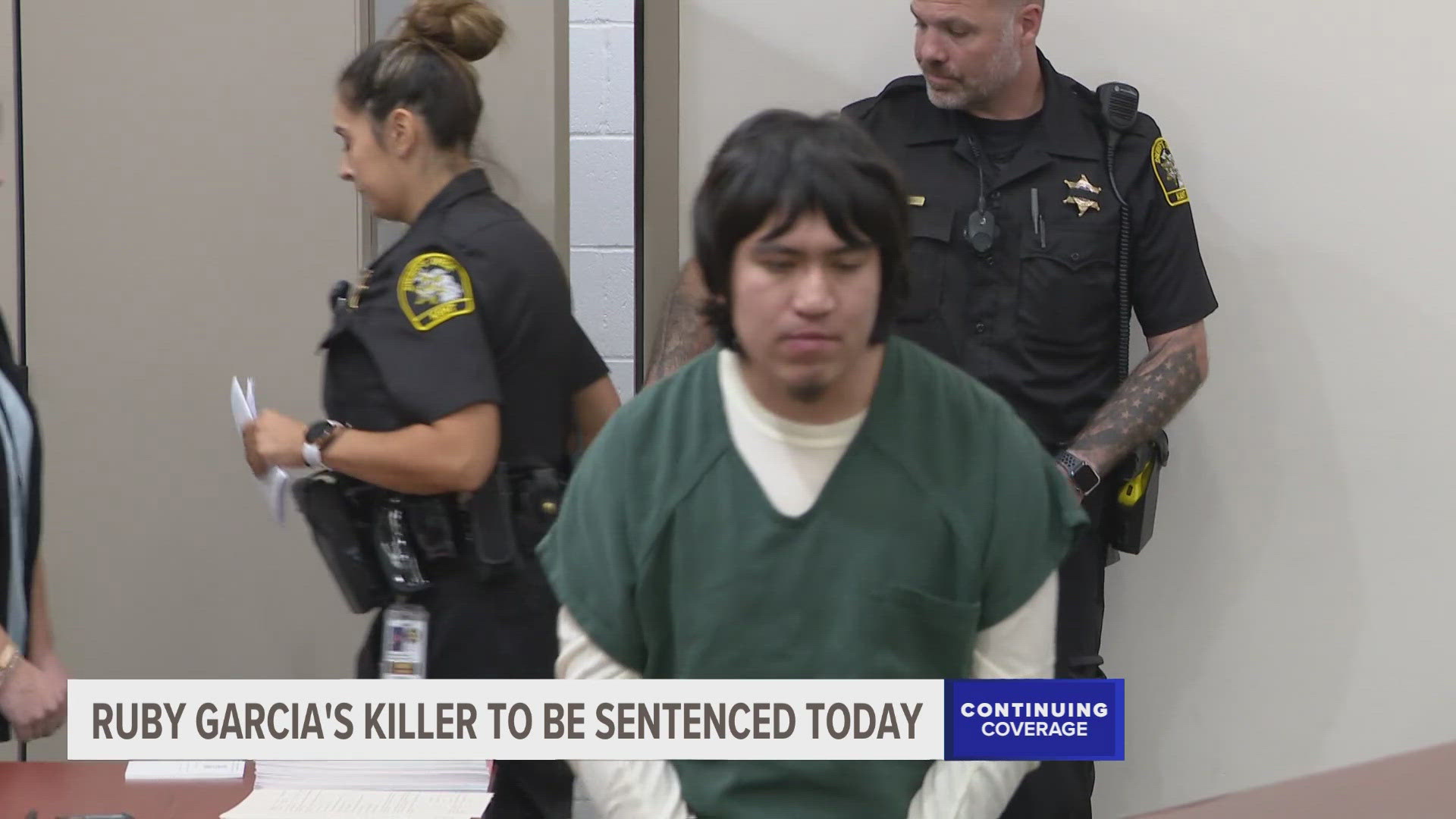GRAND RAPIDS, Mich — The man accused of killing 25-year-old Ruby Garcia and leaving her body on US-131 is set to be sentenced Thursday afternoon.
Brandon Ortiz-Vite will likely spend the next several decades in prison after pleading guilty to second-degree murder, carjacking, carrying a concealed weapon and felony firearm in relation to Garcia's death.
Garcia was killed on March 22. Her body was found by police around 11:35 p.m. on US-131 after she was shot by Ortiz-Vite multiple times and left on the freeway.
Investigators later found Garcia's car in a residential area north of the South Haven area. The car had bullet holes and suspected blood stains inside.
Two days after Garcia's death, Ortiz-Vite called 911 from a church in Allegan County and confessed to killing her, leaving her body and taking her car.
Garcia was laid to rest in March. You can read her obituary here.


It was later released that Ortiz-Vite had been in the country illegally. He was previously approved for the Deferred Action for Childhood Arrivals (DACA) program and was deported in 2020. It is not clear when he reentered the U.S.
Earlier this year, the case garnered national attention and even contributed to a Grand Rapids visit from President-elect Donald Trump.
Since Garcia's death, some in the community had pushed back on political rhetoric surrounding the situation out of fear for the harm it may do to the local immigrant community at large.
Becker addressed the politics that had emerged around the case.
"No question, this is a domestic violence case," Becker said. "Yes, there is the bigger political thing, but this is something that you know, once again, talking with the family, this is a boyfriend-girlfriend, and we've got to treat it kind of like many other cases, and being very respectful to the family. We don't, I don't want to get caught up- They were obviously uncomfortable being a part of all this in the media storm."
In September, Ortiz-Vite appeared before Judge Mark Trusock to accept a plea deal.
"You're pleading to second-degree murder, which carries maximum penalty of life or any term of years, carjacking, which also carries a maximum penalty of life or any term of years, carrying a concealed weapon, which carries a maximum penalty of five years, and what we refer to as felony firearm, and that is two years that must be served first, and then everything else is served concurrently after that," said Trusock.
Ortiz-Vite was originally charged with felony murder, open murder, carjacking and two weapons charges.
"30 to 37 years is a nice sentence," Kent County Prosecutor Chris Becker said. "So, it's not like we're just, you know, 'Let him go.' This is something that strikes a balance, I think, between the wishes of victim and public safety."
Ortiz-Vite's convictions mean that he could spend life in prison, but Judge Trusock said he agreed to the sentencing suggestion.
Ortiz-Vite is expected to be sentenced at 1:30 p.m. Thursday.

